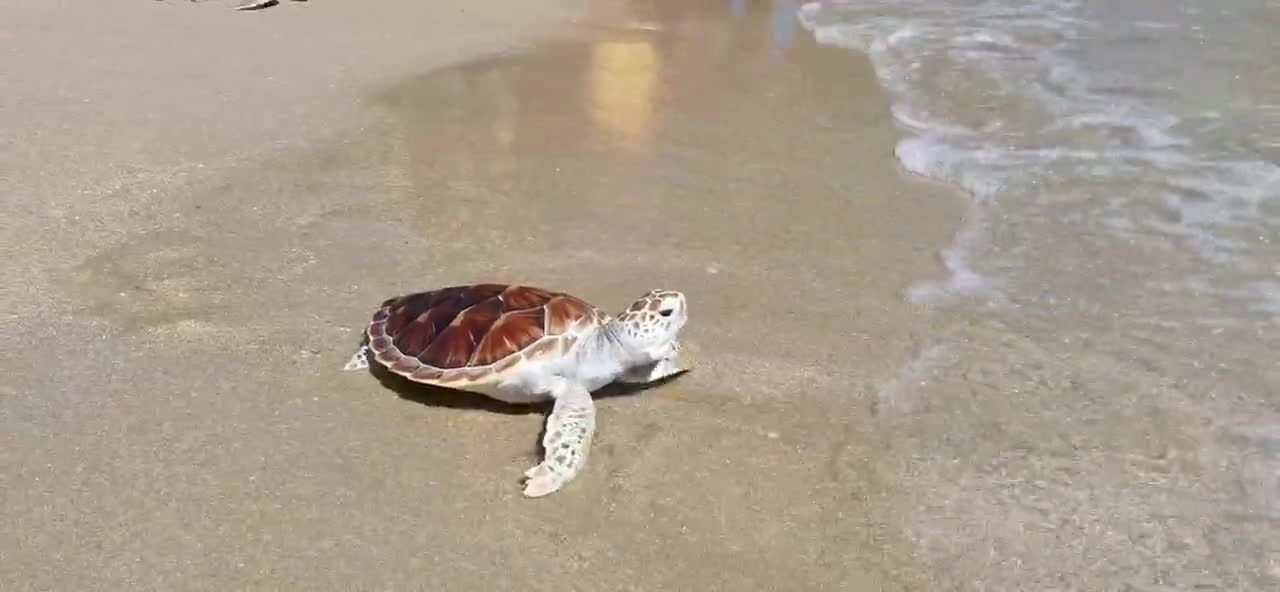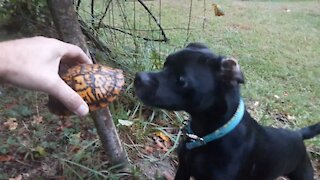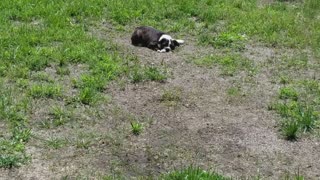Premium Only Content

The first sea experience of the baby turtle..🐢🐢🐢
It's an emotional event to see a tiny turtle (known as a "hatchling") struggle out of the nest and make its way to the sea. Everything from footprints to driftwood and crabs are hurdles, but this slog is necessary for survival. Birds, raccoons, and fish are just a few of the predators these delicate creatures encounter; some scientists estimate that just one in a thousand will survive to adulthood in the wild.
An adult female sea turtle returns to the water after nesting, leaving her nest and the eggs within it to develop on their own. The time it takes for an egg to hatch varies between species and is determined by environmental factors such as sand temperature. Because the hatchlings lack sex chromosomes, their gender is determined by the temperature of the nest.
Information about baby sea turtles
• Only one in every 1,000 hatchlings will survive to adulthood, according to estimates.
• Sea turtle hatchlings consume a wide range of prey, including mollusks and crustaceans, hydrozoans, sargassum sea weed, jellyfish, and fish eggs. Unfortunately, hatchlings misinterpret rubbish and items such as tar balls for food and consume them.
• Leatherback and flatback hatchlings are much larger than those of other sea turtle species.
• Even as hatchlings, leatherback turtles are pelagic (live in open water), and their bigger size aids with temperature regulation.
• When hatchlings emerge from the nest, they use the natural light horizon, which is usually over the ocean, as well as the white crests of the waves, to reach the water. Other light sources, such as seashore lighting, street lights, light from cars, campfires, and so on, might lead hatchlings astray, causing disorientation.
• Hatchlings confront a variety of predators as they leave the nest, including ghost crabs, birds, raccoons, dogs, and fish.
• Many scientists are afraid that rising global temperatures would cause warmer sand, resulting in more female newborn turtles than male. Find out more about the consequences of global warming on sea turtles.
Thanks for watching..
If you prefer please Visit My YouTube channel:
https://youtube.com/channel/UCXvjD1vzvThWixaIiH7j3iw
-
 1:51
1:51
Xtr34mPT
4 years agoCarx first experience of drifting
77 -
 10:07
10:07
SpiritualSelfMastery
4 years ago $0.01 earnedMy VERY FIRST REIKI Experience!
123 -
 1:34
1:34
xFrShizzLeX
4 years agoMeeting a Turtle for the First Time
104 -
 0:49
0:49
SUBIGIRL
4 years agoBull dog puppy has first pool experience
45 -
 5:52
5:52
MeelerMan
4 years agoMylee's first Oculus Experience
45 -
 2:17:37
2:17:37
The Quartering
5 hours agoFooled Again! Mamdani Backtracks Everything & Today's Breaking News!
201K124 -
 1:17:04
1:17:04
DeVory Darkins
7 hours agoPelosi SURRENDERS announces retirement and Bernie Sanders makes stunning admission
116K113 -
 4:35:22
4:35:22
StoneMountain64
6 hours agoArc Raiders is actually INCREDIBLE
68K2 -
 7:39:54
7:39:54
FusedAegisTV
8 hours agoFUSEDAEGIS PLAYS THE GREATEST JRPG EVER MADE ⌛► CHRONO TRIGGER (1995) Part 4
23.7K2 -
 1:57:50
1:57:50
The Charlie Kirk Show
7 hours agoErika's Interview + Auburn Aftermath | Schlichter, Lomez | 11.6.2025
117K21